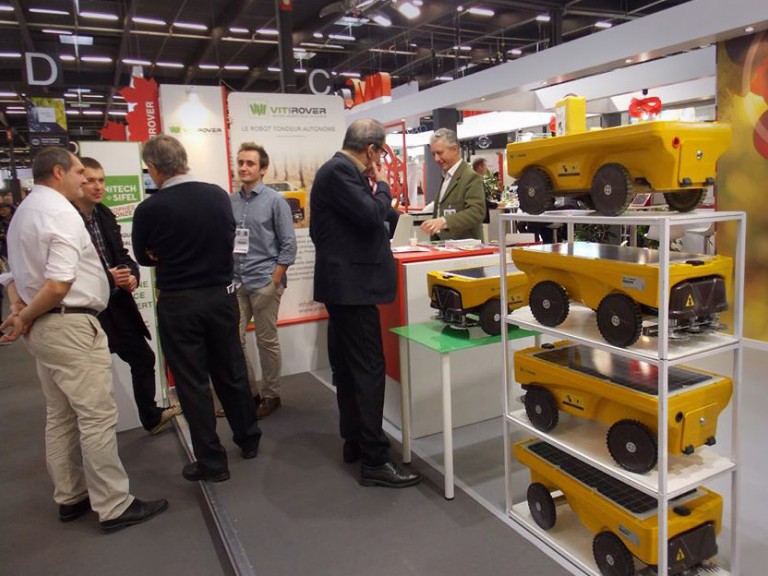While the debate around the use of glyphosate and other chemical herbicides is at the heart of the news, Arnaud de la Fouchardière and Xavier David-Beaulieu have invented a small autonomous robot that could change the course of things. Vitirover (its name) works off of clean energy, the sun. Never alone, it is part of a “herd” of robots able to maintain large areas of grassed land (vineyards, orchards, photovoltaic farms, railways, etc.) in total respect for the environment.

Taking part in EDF Pulse is a wonderful experience. It gives you the opportunity to meet with a lot of companies and partners.

Following a campaign lasting several months and a close competition between great projects, Vitirover managed to pull out of the game ahead and win the 2018 EDF Pulse Public Award. After exploring Mars with Curiosity, autonomous robots are investing in a whole new field: ecological weeding! The first training of “shepherds” (people who will supervise these “herds” of robots) could see the light of day at the University of Bordeaux. In short, a path of the future and the right seed to say goodbye to weeds in an eco-friendly manner!
-
€3Mraised
-
100haSurface covered by a herd of 50 robots
-
ZéroConsumption of gas oil or gasoline

The Team
The result of a meeting between a serial entrepreneur in the domain of marketing and communications and an electronics expert with a passion for the world of wine, Vitirover now has talented specialists in IoT, mechanics, big data and AI, and also "shepherds" who manage the robots.
4 questions to Vitirover
Where did you get the idea for this startup?
 Every second, 2kg of glyphosate/roundup herbicides are released into the environment - we had to find a solution.
Every second, 2kg of glyphosate/roundup herbicides are released into the environment - we had to find a solution.
Any recent good news?
 We are going to be joined by two new employees, an industrial manager and a sales manager and we are testing for RTE and ENEDIS at a site in Niort. That makes two good pi...
We are going to be joined by two new employees, an industrial manager and a sales manager and we are testing for RTE and ENEDIS at a site in Niort. That makes two good pi...
What is the most unexpected thing that your startup has made you do?
 A series of trips with the UN, to present Vitirover in Lebanon, Morocco and Tunisia.
A series of trips with the UN, to present Vitirover in Lebanon, Morocco and Tunisia.
In what way does your project revolutionise your category?
 It is the first time that herds of autonomous robots will be carrying out clean and permanent vegetation management, in high, medium and low voltage electric transformer ...
It is the first time that herds of autonomous robots will be carrying out clean and permanent vegetation management, in high, medium and low voltage electric transformer ...
